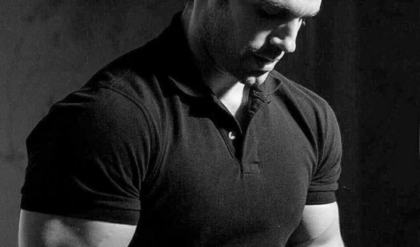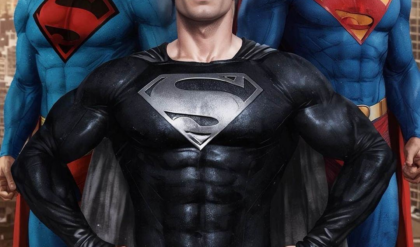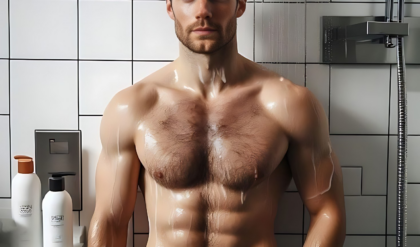‘The Rock played an actual fairy.’: Terrence Howard BACKS Katt Williams And Reveals Why He Left Hollywood | HO
So it looks like Katt Williams gained another supporter and it’s none other than Terrence Howard who is now spilling the tea on how he got fed up with Hollywood trying to put him in a dress…
According to Terrence, Hollywood is really out here trying to strip Black men of their masculinity and he’s throwing shade at the industry, claiming they accused him of being hard to work with just because he wasn’t down for playing certain kinds of roles.

Terrence Howard has joined the conversation, supporting Katt Williams and adding his voice to claims that Hollywood is trying to emasculate Black men by pressuring them into wearing dresses on screen. Howard suggests that refusing such roles has led to him being labeled “difficult to work with,” a label he believes is undeserved and rooted in his resistance to certain types of roles.
The idea that Hollywood pushes an agenda to make Black men appear more effeminate isn’t new. Comedians like Dave Chappelle and Katt Williams have discussed this, suggesting that Black actors are pressured to wear dresses before they can reach A-list status. While some fans dismiss this as an overblown issue, others see it as a significant problem, with Terrence Howard among the latter.
Terrence Howard’s career has been marked by notable successes and controversies. He gained fame for his Oscar-winning performance in “Crash” and for his role as Rhodey in “Iron Man.” However, by 2010, Don Cheadle had replaced him in the Iron Man sequel. Reports suggested Howard received a significant pay cut offer, which he may have refused, leading to his replacement. Entertainment Weekly hinted that Howard had a temper issue, making him difficult to work with, but Howard contends that this narrative was a deliberate attempt to brand him as the “angry Black man.”
Eddie Griffin was one of the first to speak out about Hollywood’s alleged agenda. In his 1999 film “Foolish,” Griffin depicted the pressure Black comedians face to wear dresses on screen. Dave Chappelle later recounted a similar experience, where he was pressured to wear a dress for a role but refused. Kevin Hart initially dismissed such claims but later wore a dress in an SNL sketch, which some believe significantly boosted his career.
Katt Williams has added another layer to the conversation, linking the dress-wearing to an alleged involvement with the Illuminati. He suggests that agreeing to wear a dress is a form of initiation or compliance with industry power structures.
In a recent interview, Howard emphasized his stance against Hollywood’s portrayal of Black men. He argued that the industry pressures Black actors to adopt a more effeminate image to succeed. He stated, “My daddy taught me never take the vertebrae out of your back or the bass out of your throat. I ain’t raising sheep. I raised men.”
The internet is divided on this issue. Some dismiss Howard and Williams as conspiracy theorists, arguing that the focus on comedians wearing dresses is misplaced and that other issues, like rap and hip-hop culture, pose more significant threats. Others, however, support Howard and Williams, believing there is indeed an agenda to emasculate Black men in Hollywood.
Terrence Howard Claims ‘Empire’ Studio Breached Deal
Terrence Howard has filed a lawsuit against 20th Century Fox Film (now a division of Disney) — and straightforward it is not. The actor seeks unpaid compensation from Empire, the Fox drama that recently completed its sixth and final season. More specifically, the actor appears to be targeting the merchandising of the show.
What makes the case out of the ordinary is the circuitous route that Howard’s attorney Lawrence Townsend goes about in attempting to achieve a bigger pay day. He lavishes attention on one of the show’s logos. (See at bottom.)

“The image was of Plaintiff and did not, in and of itself, raise a question,” states the complaint before perhaps fatefully continuing, “The Agreement granted all rights to Plaintiff’s name and likeness to Defendant in connection with the Series.”
So if Howard has granted Fox rights, what’s his beef?
The complaint (read here) then adds this interpretation of Howard’s contract: “[A]lthough the Agreement did grant publicity and promotional uses to Defendant, but only if Defendant sought and obtained approval rights to images used, the Agreement did not however permit direct endorsement of goods and services other than the Series.”
Howard says he can’t get a clear answer on royalties for goods bearing his name and image. Ultimately, though, he’s not suing for violation of his publicity rights nor a false endorsement. He’s suing for breach of contract and demands an accounting.
And the complaint (which isn’t very long) further muddies the situation by invoking his work (and deal and another studio’s intellectual property) for a different motion picture. Howard’s complaint states that in the course of an investigation, “it became clear that the image of Plaintiff used for the Logo was derived from a still shot (a precise frame) from the Paramount motion picture Hustle & Flow, taken from recording-session scene where the movie’s theme song, ‘It’s Hard Out Here for a Pimp,’ is sung. The still frame was selected, reversed (face looking left, not right), and subjected to CGI that simply distilled the cinematographer’s skilled capture of the head with vibrant light and shadow.”





